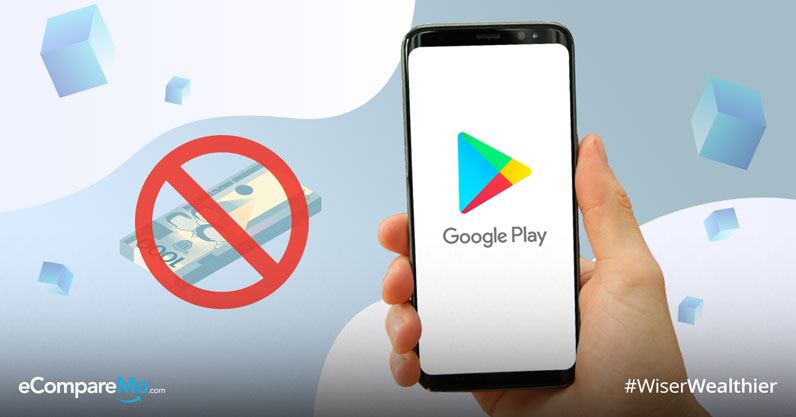Predatory Personal Loan Apps Banned From Google Play Store In The US
2 min readGoogle has announced that it will be banning applications that offer predatory personal loan services from the Play Store in the US.
According to the Wall Street Journal, Google recently prohibited apps from loan providers with deceptive or harmful personal loan provisions to be operational on the Google Play Store.

Earlier this year, Google had updated the Play Store guidelines forbidding predatory lending applications from operating in the platform. The move is part of Google’s way of fighting ravaging payday loans, which can come with triple-digit interest rates.
The implementation
In August, Google implemented an expanded financial policy meant to protect users against these exploitive scams. This was revealed on their ‘restricted content’ policy page, which now lists high-interest loan services among the types of apps no longer allowed in the store
The company no longer allows personal loan applications for loans that come with a 36-percent or greater APR, as well as minimum and maximum repayment period for the products and an example of the total cost of a loan.
Google is also banning apps that offer personal loans that must be fully paid back within 60 days, something often referred to as short-term or “payday†loans. The restriction covers a variety of apps, including ones that merely link to third-party lenders offering these products.
These apps join the Google Play Store’s growing list of restricted content. Google already prohibits a number of other financial apps, including those that enable users to mine cryptocurrency and to trade binary options. Beyond finance, the company also restricts certain types of gambling apps, the ones involving illegal activities, and more.
(Read: 19 Online Lending Companies Ordered To Cease Operations By The SEC)
To stay or not
The Wall Street Journal study found that households earning less than $25,000 a year are 51.8% more likely to own Android phones. Similarly, for those making $250,000 and above, there was a 59.7% chance that they’d own iPhones.
The estimates are based on surveys of 30,000 owners of mobile phones and tablets conducted earlier this year. According to survey participants, Apple should also implement similar policies against lending apps on the App Store.
With Google’s new policies in place and in order for lenders to continue their operations on the Play Store, they must now adjust their products and business models to conform with the stricter guidelines set by Google.
Consumer advocacy groups celebrated Google’s decision, as payday-loans are often targeted towards low-income customers who are more likely to use Android devices.
SOURCES: Android Authority, Tech.co, Joy of Android, Tech Radar, WCCFTech, Slash Gear, Engadget
